Activate/deactivate CTA
CTA is activated when the engine is started. This is confirmed by the indicator lamps in the door panels flashing once.
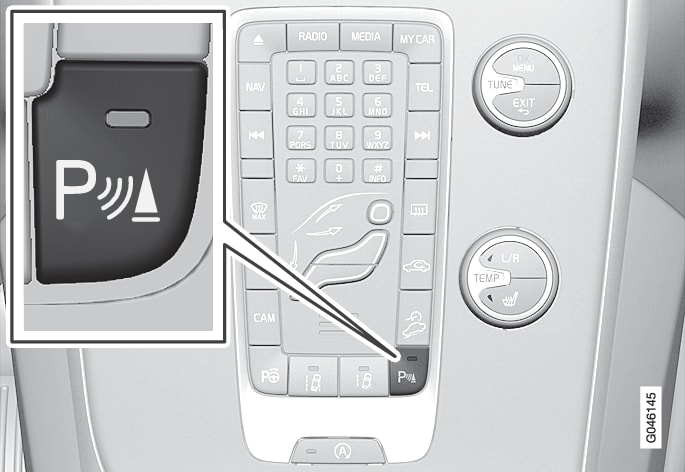
In cars equipped with Parking assistance, the CTA function can be deactivated/activated separately with the parking assistance On/Off button.
In cars without a button for parking assistance, the CTA function can be operated in the menu system MY CAR MY CAR, as follows:
- Search for Cross Traffic Alert under BLIS and uncheck - the CTA function is then deactivated.
However, the BLIS function remains activated after the CTA has been deactivated.
Warning
CTA is a supplementary aid and does not work in all situations.
CTA is no substitute for a safe driving style and the use of rearview and door mirrors.
CTA can never replace the driver's responsibility and attention - it is always the driver's responsibility to reverse in a safe manner.
When CTA operates
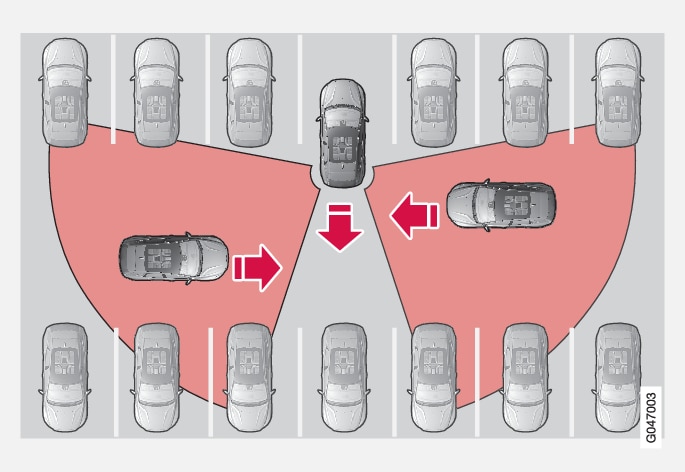
CTA supplements the BLIS function by being able to see crossing traffic from the side during reversing, such as when reversing out of a parking space.
CTA is primarily designed to detect vehicles. In favourable conditions, it may also be able to detect smaller objects, such as cyclists and pedestrians.
CTA is only active during reversing and is activated automatically when reverse is selected at the gearbox.
- If CTA detects something approaching from the side, an acoustic warning signal sounds. The signal comes from either the left or the right speaker depending on which direction the approaching object is coming from.
- CTA also warns by illuminating the BLIS lamps.
- An additional warning is provided in the form of an illuminated icon in the display screen's PAS graphics.
Limitations
CTA does not perform optimally in all situations, but has a certain limitation - for example, the CTA sensors cannot "see" through other parked vehicles or obstructing objects.
Here are some examples of when CTA's "field of vision" may be limited from the beginning and approaching vehicles cannot therefore be detected until they are very close:
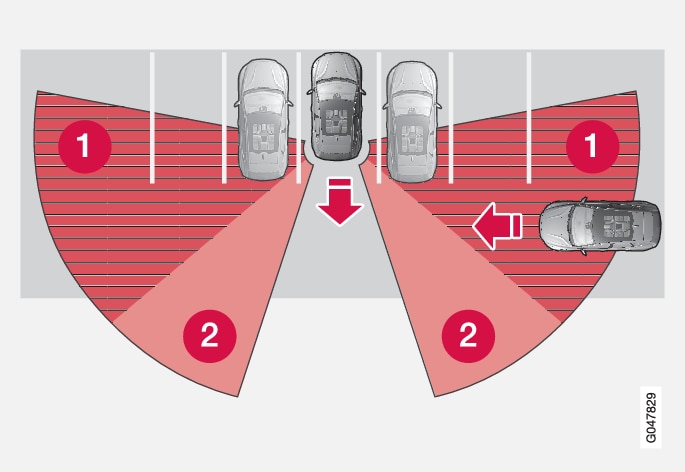
 Blind CTA sector.
Blind CTA sector. Sector where CTA can detect/"see".
Sector where CTA can detect/"see".
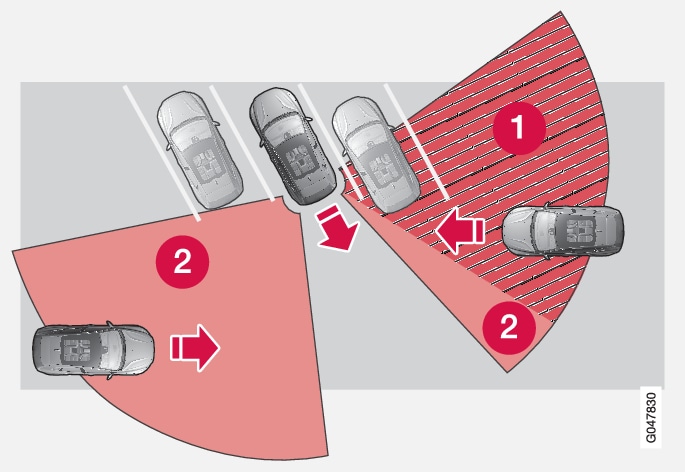
However, when the driver is slowly reversing the car, the angle is changed in relation to the vehicle/object that is blocking, at which the blind sector rapidly decreases.
Examples of further limitations:
- Dirt, ice and snow covering sensors can reduce functionality and make it impossible to provide warnings. CTA cannot detect hazards if it is covered.
- CTA is deactivated when a trailer is connected to the car’s electrical system.
Important
Maintenance
The sensors for the BLIS and CTA functions are located inside the rear wing/bumper on each corner of the car.
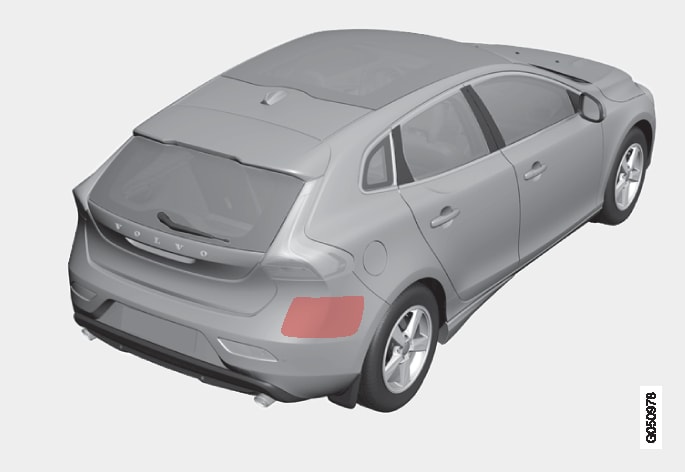
- To ensure optimal functionality, the areas in front of the sensors must be kept clean.
- Do not affix any objects, tape or labels in the area of the sensors.